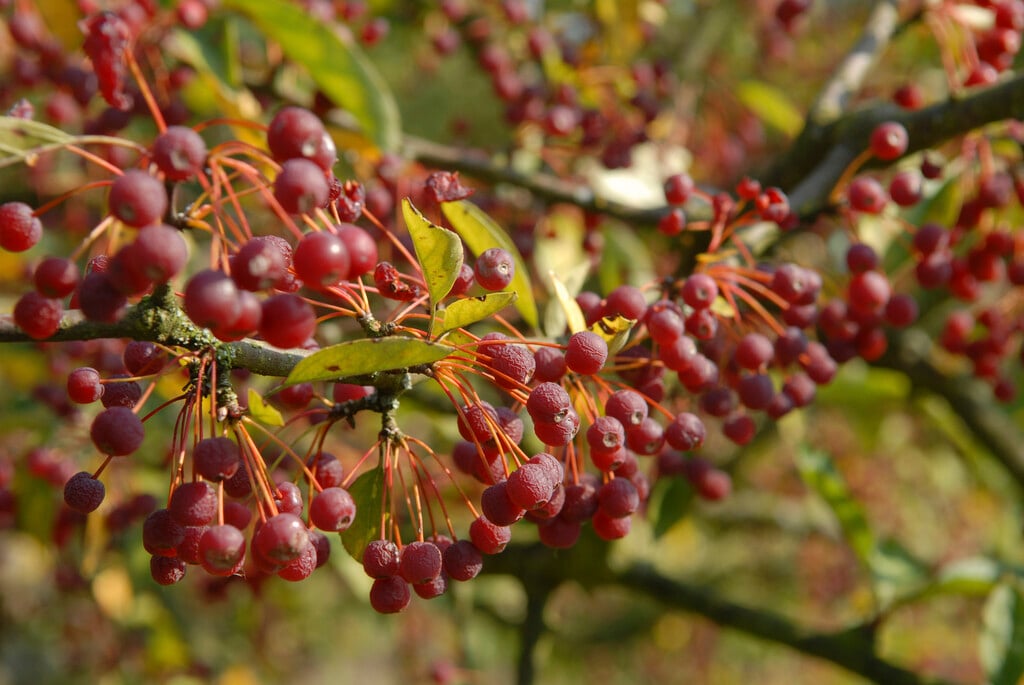Malus Coralburst ('Coralcole')
crab apple [Coralburst]
A very slow-growing, compact, rounded, small tree with small, narrowly oval, grey-green leaves. In mid- to late spring produces semi-double, pink and white blossom from rich pink buds, followed by bronze-green fruit 1cm across

Buy this plant
Size
Ultimate height
2.5–4 metresTime to ultimate height
more than 50 yearsUltimate spread
2.5–4 metresGrowing conditions
Moisture
Moist but well–drainedpH
Acid, Alkaline, NeutralColour & scent
| Stem | Flower | Foliage | Fruit | |
| Spring | Pink White | Green Grey Silver | ||
|---|---|---|---|---|
| Summer | Green Grey Silver | |||
| Autumn | Green Grey Silver | |||
| Winter |
Position
- Full sun
Aspect
South–facing or West–facing
Exposure
Exposed or Sheltered Hardiness
H6Botanical details
- Family
- Rosaceae
- Native to GB / Ireland
- No
- Foliage
- Deciduous
- Habit
- Bushy
- Potentially harmful
- Although generally edible when cooked, seeds contain toxins so these should be removed if you are considering eating the fruit, usually grown as an ornamental shrub. see the HTA guide to potentially harmful plants for further information and useful contact numbers
- Genus
Malus are small to medium-sized deciduous trees with showy flowers in spring and ornamental or edible fruit in autumn; some have good autumn foliage colour
- Name status
Trade
How to grow
Cultivation
Grow in moderately fertile soil in a sunny position. Often sold grafted onto a stem to produce a lollipop shape suitable for growing in a container
Propagation
Propagate by chip budding in late summer or grafting in mid-winter
Suggested planting locations and garden types
- City and courtyard gardens
- Cottage and informal garden
- Patio and container plants
- Flower borders and beds
Pruning
Pests
May be susceptible to aphids, woolly aphid, fruit tree red spider mite and caterpillars
Diseases
May be susceptible to apple scab, apple canker, powdery mildews, fireblight and honey fungus
Get involved
The RHS is the UK’s gardening charity, helping people and plants to grow - nurturing a healthier, happier world, one person and one plant at a time.